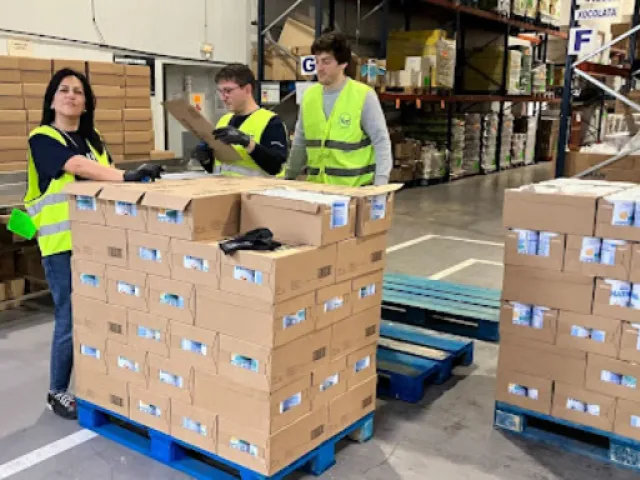878 total articles
Filter

Video
Building the Smart Supply Chain: Trusted Data, Simplified Integration, and Scalable Collaboration
View More
Video
Making AI Work Across the Supply Chain: Tecsys on Data Discipline, Execution, and Network Effects
View More
Video
Evolving the Supply Chain Mindset: How AI is Reshaping Behaviors, Roles, and Operating Models—Insights from Genpact
View More
Video
Transforming Track and Trace at Enterprise Scale: How Amalia Technologies Guided Fresenius Medical Care’s Transition to TraceLink
View More
Video
Powering Innovation in Life Sciences: How Amalia Technologies Uses TraceLink POET to Build High-Impact Supply Chain Solutions
View More
Video
Building the Foundation for Agentic AI in Life Sciences and Healthcare Supply Chains
View More
Video
Digitalization, Compliance, and Agentic AI: Inside Cheplapharm’s Evolving Supply Chain Digitalization Journey
View More
Video
From Company Culture to Data Foundations: How Santen Is Preparing Its Organization for Agentic AI
View More
Video
The Partnership Mindset Supply Chains Need: Merz Pharma on Digitalization, Crisis Readiness, and Agentic AI
View More
OPUS Orchestration Journey
Top US Pharmacy Services Provider Chooses TraceLink to Expand 340B
View More
OPUS Orchestration Journey
Global Pharma Manufacturer Chooses TraceLink for First U.S. Product Launch
View More
Blog
Digitalizing Life Sciences Logistics: Lessons from Industry Leaders on Ensuring Agility, Resilience, and Patient Safety
View More
Video
Integrate Your Way with End-to-End, Multi-Modal Interoperability for Supply Chain Transactions Across Every Partner
View More
Video
Orchestrating Outcomes: Transforming Pharma Logistics with Digitalization and a Network-Based Supply Chain
View More

Blog
Agentic Orchestration and the Future of Supply Chain Digitalization: 10 Takeaways from TraceLink CEO Shabbir Dahod’s FutureLink Barcelona Keynote
View More
Video
Gain Real-Time, End-to-End Supply Chain Insights with TraceLink OPUS Reports and Dashboards
View More
eBook
AI and Technology in Pharma: Collective Insights from 100 Global Supply Chain Leaders
View More
Video
FutureLink Barcelona 2025 Keynote: Agentic Orchestration of Your End-to-End Supply Chain
View More

Video
Improving Customer Service and Production Planning with Forecast and Order Collaboration
View More

Video
Leveraging New Advances in Supply Management, Inventory/Stocking Control, and Shortage Prevention
View More
Video
Learnings in Organizing and Aligning Your Organization to Successfully Launch and Leverage AI Projects
View More


Video
Why End-to-End Value Chain Orchestration Powered by AI Helps Leaders Meet Corporate Goals
View More
Video
Building a Digitalized Supply Chain Control Tower That Orchestrates and Acts, Not Just Observes
View More
Video
Leveraging Better Visibility and Collaboration Across External Manufacturing and Logistics Through Digitalization
View More

